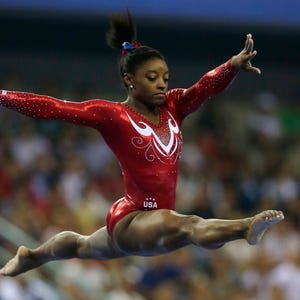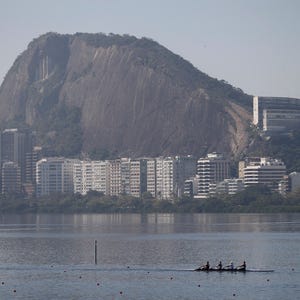Water at Rio Olympics ‘not a big problem,’ swimming president says – USA TODAY
KAZAN, Russia (AP) — Water quality at next year’s Olympic venues is “not a big problem”, according to the head of swimming’s governing body.
An Associated Press investigation last week showed a serious health risk to the 1,400 Olympic athletes who will compete at water venues around Rio de Janeiro that are rife with human waste and sewage.
FINA President Julio Maglione said Wednesday that water quality is “not a big problem at the moment.”
He added that FINA is in contact with the International Triathlon Union, which held an Olympic test event at Copacabana last week, to track the health of the triathletes who competed.
“They were swimming in this water, and they’re going to make an examination of all the athletes that competed,” Maglione said.
The AP study showed that the spot where athletes were entering the water on Copacabana Beach, the venue for marathon swimming, had a minimal reading of over 2 million human adenovirus per liter — that’s 2,000 times the reading that water experts in the U.S. say would be considered highly alarming if seen on beaches in the U.S. or Europe. At the high end, Copacabana registered 49 million adenoviruses per liter in the AP study.
Human adenovirus multiply in the intestinal and respiratory tracts of people. These are viruses that are known to cause respiratory and digestive illnesses, including explosive diarrhea and vomiting, but can also lead to more serious heart, brain and other diseases.
Amid virus concerns at other water venues in Rio de Janeiro, the world rowing and sailing federations have called for viral testing of the water. The CEO of World Rowing, Matt Smith, told AP he expects the federations for canoeing, swimming and triathlon to also back viral tests.
In AP’s study, all Olympic water venues were shown to have dangerously high viral levels, according to water safety experts who reviewed the data. Following AP’s study, the World Health Organization advised the International Olympic Committee to analyze viral levels in Rio waters.
Also Wednesday, Maglione said he would push for more swimming sprint events in the pool for the 2020 Olympics as the IOC prepares to open discussions over the program.
With the IOC keen to limit the number of athletes at the Olympics, rather than introducing a women’s 1,500-meter event, which would involve bringing in more competitors, it makes sense to add more contests for sprinters already at the games, he said.
“It’s more important, 50 meters, because we have 50 meters only in freestyle and we need it in all the styles,” he said. “We can do this competition with the same swimmers as the 100 meters and now it’s very difficult to include new competitions or include more athletes.”
Copyright 2015 The Associated Press. All rights reserved. This material may not be published, broadcast, rewritten or redistributed.






